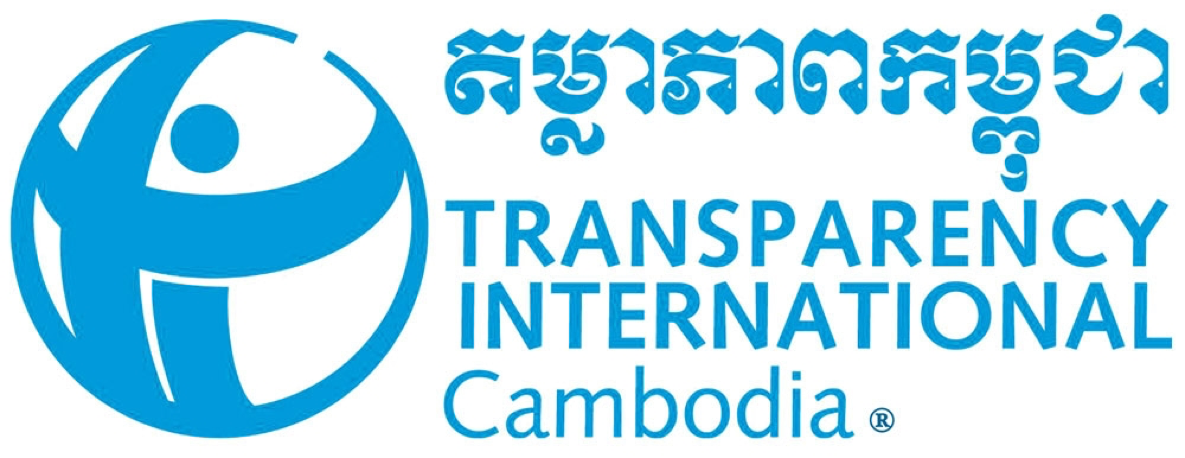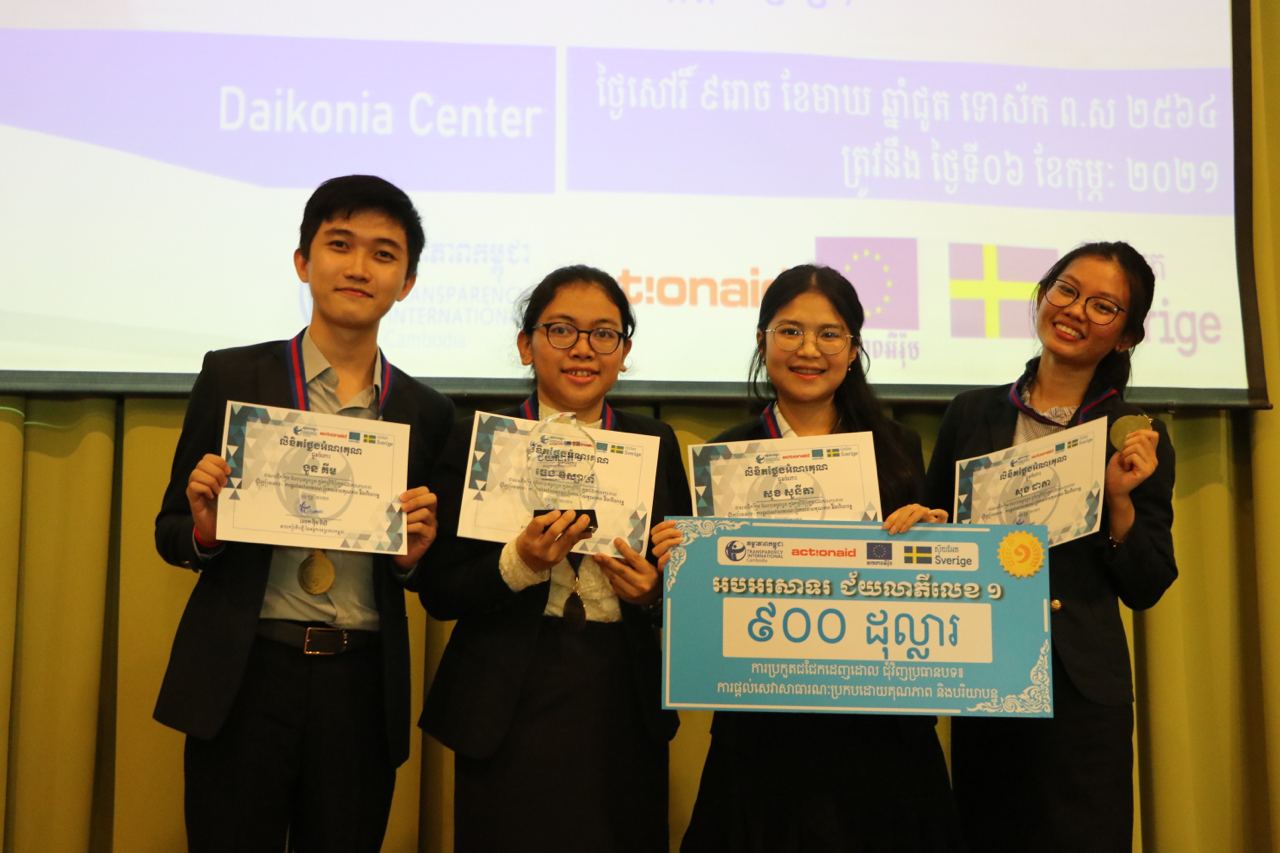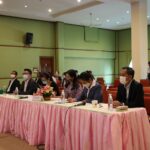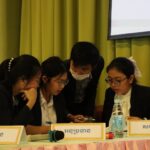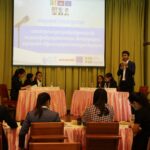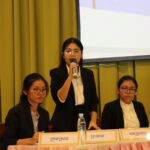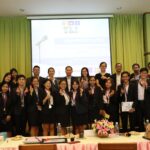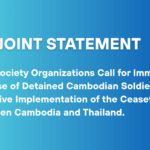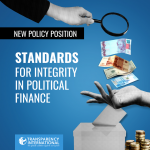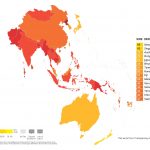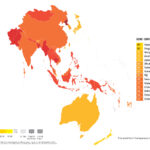Blog: The Journey of the 2020 Youth Debate Champion
This blog aims to provide a summary of our journey and experience as the winner of the Youth Debate Competition 2020. The beginning of this blog discusses our group formation and moving forward to our debate topics from one week to another alongside the challenges embedded in each of them. The blog will be concluded with our insights, lessons learnt, and encouragement for the next generation to get involved in this competition.
Our group consists of four members, namely Sok Sonita, Nguon Kim, Cheng Ousa, and Song Daphea. All of us came from various majors; two majoring in International Relations and two majoring in Business Administrative. Besides, we also came from various universities; two from the American University of Phnom Penh (AUPP), one from the Institute of Foreign Affair (IFL), and one from Paragon International School (PIU). Although we are from diverse backgrounds, we share common interests and passions leading us to this group formation for this competition. All of us understand the importance of transparent and accountable public services systems and hope to develop a deeper understanding of it. In addition, we would like to enhance our ability of Khmer usage in formal contexts and promote the culture of dialogue, which allows youth to critically discuss certain social issues without violence.
For the whole competition, the theme of the debate is public service. At the very first stage of the competition, our topic is related to corruption in which we try to show that corruption is not the only main factor that hinders good public service delivery and there are many more factors. In the second stage, our topic was the ID poor program which is one of the government responses to help poor people during the current situation of COVID-19. In the Quarter-final round, our topic was getting harder and we were debating about the sub-decree 182 in which we try to show the importance of this sub-decree in promoting decentralization. In the semi-final round, the power of the press came to highlight and as a government side, we found various sources of how significant the press is in assuring the good delivery of public service because the press is a mirror to show the administration’s action. At the last stage of this competition, it is about the ombudsman which was not widely known among the population, but it is one of the mechanisms that is used by the government in dealing with complaints from people about public service delivery. These topics were under appeal to Cambodian youth, but with this competition, not only did we learn from our opponents, but we also learnt from other contestants on other topics.
One of the major challenges that we faced in this competition is our proficiency in Khmer language, which is officially used in this debate competition, despite the fact that it is our mother tongue. We believe this is a common troubling trend for most students today, especially those who study in foreign languages like English. Moreover, since we are from different universities, it is, needless to say, very hard to find a common time, in which everyone could meet face-to-face and discuss. Besides our schedule conflicts, it might be a big surprise that none of us were quite familiar with most vocabulary and terms that were frequently used in this competition. More importantly, we also experienced difficulties in doing research. This is mainly because the sources of data and information are very limited and, most of the time, not up-to-date. Regardless of all the challenges that we encountered, we were able to pull them off thanks to our commitment, sacrifice, and everyone’s contribution.
This competition has enriched us in the most remarkable way possible. On top of our success in enhancing our speaking skill, each of us gained abundant knowledge about the public service sector. Since the beginning, our team has had the opportunity to analyse and explore government policy from two perspectives. We examine the high and low of the policy’s feasibility, inclusivity, and effectiveness to produce a series of solid argumentations. Additionally, throughout the competition, we gained a better understanding about the function of the national sub-decree, policy, and public services office. For instance, throughout this competition, our team was able to understand in depth about the Ombudsman office along with the one-window service office as well. Finally, with these valuable lessons, we can see ourselves using them for the betterment of society.
In conclusion, we would like to express our deepest and most sincere appreciation to Transparency International Cambodia and relevant stakeholders for this amazing opportunity allowing youths like us to engage on the stage to protect our stance. Generally, in a particular debate, both sides are not right or wrong, but each side is trying to prove why their side of the house is better in solving the problem given by the topic. Not only did we know about the issue, but we also learnt various solutions including their strengths and weaknesses. We highly encourage youth to join this competition in the future and they will undoubtedly broaden their horizon about the topic and debate skill.
The Youth Debate Competition under the theme: “Inclusive and Quality Public Service Delivery”, organised by Transparency International Cambodia (TI Cambodia), aims to raise awareness among youths on public service delivery and budget accountability at local levels. At least 29 topics concerning inclusive and quality public service delivery at sub-national levels are debated throughout the course of the events. The topics include inclusive and accountable public service delivery and budget transparency and accountability at sub-national levels. This debate competition is part of Greater Young Women Empowerment in Decision Making and Accountable Public Service Delivery Project with the financial support of the European Union (EU) and Swedish International Development Cooperation Agency (Sida).
Written by: សវនយុវជន
This post is also available in: Khmer
 English
English ភាសាខ្មែរ
ភាសាខ្មែរ